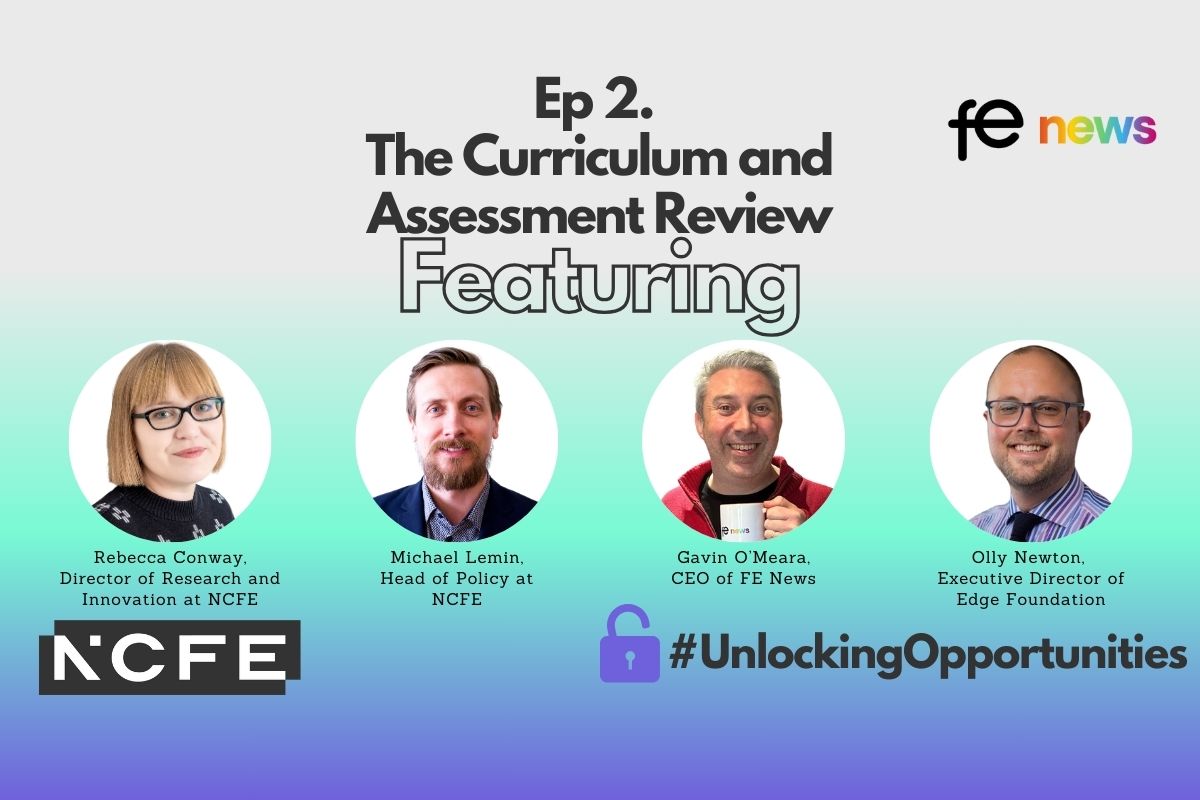Bigger Better Bolder – What should the Future of FE look like?

At @ukEdge we have been keen to keep the discussion going on how we can drive forward a new agenda for further education in this challenging year. Opening our roundtable on 29 September, Neil Bates, chair of the Edge Foundation stated “the role of FE in supporting individuals and communities to succeed, help businesses attract and train the talent they need and in tackling inequality and promoting social mobility has never been so important as the country seeks to recover”. There is certainly a spotlight on FE at the moment as we see different initiatives develop ahead of the FE white paper.
Shortly after the event we heard the announcement from the Prime Minister on the Lifetime Skills Guarantee which will provide adults the chance to take free college courses valued by employers. The announcement further highlights the role FE is playing in developing high-quality skills employers will need to support the country’s economic recovery.
1. The FE sector needs to be Bigger, Better and Bolder
Key words resonating from David Hughes were that the sector needs to be “bigger, better and bolder” in its demand to be taken more seriously. The sector is central to the economic recovery however, rather than taking the economy back to where it was, it is now about shaping renewal and the skills that will be needed in the future.
Rachel Bowen from Colleges Wales echoed this challenge in implementing an economic recovery post Covid-19 that is not a return to what it was before but one that truly works for all citizens. Hughes added that “further education needs to be seen as vital to the education system but also the national infrastructure”. Yet, there’s still a lot that needs to be achieved for FE to be seen in this way.
Covid-19 has underlined the need for change and for transformation within FE. Marie-Therese McGovern, former principal of Belfast Met, stated that there is a lack of clarity and consistency within FE and it’s time to get rid of the notion that one size fits all. FE needs to face its challenges going forward and take its place by deciding what its unique selling point is. McGovern stressed “FE needs to stop being grateful about being in the room and instead own the room”. Through this ambition, the sector needs to define its uniqueness and going forward needs to know what it wants to maintain, what it wants to grow and what it wants to lose in its new agenda.
2. Delivering on people, productivity and place
Speakers and panellists from across the four nations resonated the Commission on the College of the Future’s vision that FE is central for people, productivity and place. Lewis Cooper, Director of the Commission, stated these are concepts the sector needs to draw on, scale up and ensure are happening consistently. People are a defining heart of FE, and the sector needs a new and strong contract with them for lifelong learning to be achieved. There needs to be an improved learning culture where people go into education to train and then retrain when needed.
All this must take place against the backdrop of the fourth industrial revolution, digitalisation, Brexit, climate change and now the consequences of Covid-19. Hughes stated that “once people are getting the skills advice they need, productivity is being addressed, and place and locality is central – then FE can be proud”.
3. The four nations approach is vital to draw on for a new FE agenda
Both Cooper and Olly Newton, Executive Director at Edge emphasised the importance of the four nations approach to draw, build and learn from policies and practices that can work for the sector. McGovern, a member of the four nations alliance that Edge has supported, noted that as time goes on we are seeing a “drift between the four nations in terms of their vocational process and structures”. For example, colleges vary in their relationships with government and England is particularly different from the other nations in this regard. Hughes states that it will be important for the sector to reposition the relationship between government and colleges.
It is therefore crucial to work across the four nations and look at good examples to tackle issues such as digital exclusion, blended learning, funding, workforce development and a new skills strategy. A new national skills strategy is needed for the UK with a unifying concept that each nation could adopt. If FE can learn and share lessons across the four nations then it can develop something stronger than the sum of those parts – something that Edge wants to continue to support in coming years.
Dana Dabbous, Researcher at The Edge Foundation
Edge’s FE Roundtable took place on 29 September and featured Neil Bates, Chair of the Edge Foundation; David Hughes, CEO Of the Association of Colleges; Marie-Therese McGovern, former Principal and Chief Executive of Belfast Metropolitan College; Rachel Bowen, Director of Policy and Public Affairs at Colleges Wales; Lewis Cooper, Director of the Independent Commission on the College of the Future; and Olly Newton, Executive Director of the Edge Foundation.











Responses